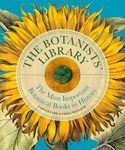About this book
When and where did science begin? Historians have offered different answers to these questions, some pointing to Babylonian observational astronomy, some to the speculations of natural philosophers of ancient Greece. Others have opted for early modern Europe, which saw the triumph of Copernicanism and the birth of experimental science, while yet another view is that the appearance of science was postponed until the nineteenth century.
Rather than posit a modern definition of science and search for evidence of it in the past, the contributors to Wrestling with Nature examine how students of nature themselves, in various cultures and periods of history, have understood and represented their work.
The aim of each chapter is to explain the content, goals, methods, practices, and institutions associated with the investigation of nature and to articulate the strengths, limitations, and boundaries of these efforts from the perspective of the researchers themselves. With contributions from experts representing different historical periods and different disciplinary specializations, Wrestling with Nature offers a fresh perspective on the history of science and on what it meant, in other times and places, to wrestle with nature.
Contents
Acknowledgments
Introduction
1. Natural Knowledge in Ancient Mesopotamia
Francesca Rochberg
2. Natural Knowledge in the Classical World
Daryn Lahoux
3. Natural Knowledge in the Arabic Middle Ages
Jon McGinnis
4. Natural Knowledge in the Latin Middle Ages
Michael H. Shank
5. Natural History
Peter Harrison
6. Mixed Mathematics
Peter Dear
7. Natural Philosophy
John L. Heilbron
8. Science and Medicine
Ronald L. Numbers
9. Science and Technology
Ronald Kline
10. Science and Religion
Jon H. Roberts
11. Science, Pseudoscience, and Science Falsely So-Called
Ronald L. Numbers & Daniel P. Thurs
12. Scientific Methods
Daniel P. Thurs
13. Science and the Public
Bernard Lightman
14. Science and Place
David N. Livingstone
Contributors
Index
Customer Reviews
Biography
Peter Harrison is the Andreas Idreos Professor of Science and Religion at the University of Oxford. Ronald L. Numbers is the Hilldale Professor of the History of Science at the University of Wisconsin–Madison. Michael H. Shank is professor of the history of science at the University of Wisconsin–Madison.



































